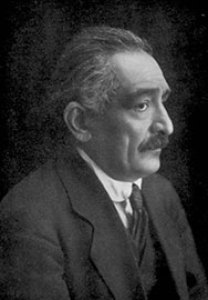ABDULKADIR EL MERAGI first 1360-1435 Iran Azerbaijan, Iran Iran
İMAMEDDİN NESİMİ 1369-1417 Shamakhi of Azerbaijan, Azerbaijan
FETHULLAH ES-SHIRVANI 1417-1486 Azerbaijan Schema, Azerbaijan Azerbaijan Mathematics, Astronomy, Geography Mathematics in Anatolia,
SEYYİD YAHYA ŞİRVANİ …..-1466 Azerbaijan Shirvan, Azerbaijan
Karabakh d1535 Caucasia Karabakh Azerbaijan has extensive knowledge and skill on tafsir, hadith, kalam, fiqh, jurisprudence and Arabic literature. With his work on Tahafut, he enabled theology-philosophy issues such as Hocazâde, Tûsî and Kemalpaşazâde to be dealt with together and systematically. In his work, which is also known as Tehâfütü’l Hükemâ, he criticizes Karabâğî, Gazzâlî and Hocazâde from time to time. As in Ghazali, there is no takfir, and there are no issues of juziyyat and resurrection. He took care to be objective by dealing with issues differently and unusually, not showing fanaticism about using rational inference. He has been able to look at the problems with the eyes of a philosopher, adding new dimensions to the subjects.
MOLLA HAFIZ Ö1550 Azerbaijan Ganja, Berda Azerbaijan became famous as Hafiz Acem in the Ottoman Empire. His real name is Mehmed b. Ahmed, was born in the town of Berda in the Ganja province of Azerbaijan. He completed his education in Tabriz, then took refuge in the Ottoman Empire and settled in Amasya. In the meantime, he had the opportunity to meet with the prince Sultan Selim, who was the governor of Trabzon, and to participate in his conversations and gained his respect, and therefore he was given the professorship of Amasya Ali Pasha Madrasah. In addition, he entered the service of Mu’id-zâde Abdurrahman Efendi and took lessons from him and some other scholars. After gaining the appreciation of the Ottoman ulema, he began to be known more. One of the characteristics of Hâfız Acem is that he rose by changing the madrasah frequently and presented a few works in every madrasah change.This situation means that he gains confidence and at the same time gives confidence. Through Mu’id-zâde Abdurrahman Efendi, II. He had the opportunity to meet with Bayezid, then he had the opportunity to teach in Ankara, Merzifon, Istanbul Ali Pasha, Iznik and finally Hagia Sophia Madrasah. He wrote the works named Noktatü’l‐ilm, Fihristü’l‐ ulûm, Maarîkû’l‐ketaib, Seb’a‐ı seyyare, Tuhfetü’l‐mestur, Tercüme-i Timurnâme, Ta’likat, Risâletü’l-pen. He wrote annotations for some parts of Cürcânî’s Mevâkıf. He has a work called Risaletü’l-Heyulâ. He wrote a commentary on Tecrid called Muhâkemâtü’t-tecrîdiyye. In his work called Medinetü’l-ilm, he expressed his objections to people such as Beydavî, Taftazânî, and Cürcânî. Charitable commentary,Ahlâk-ı Adudiyye Commentary, Pend-i Attar Commentary, Kenzü’l-Ummal Commentary, Kuduri Translation, Levayih translation of Molla Cami, Bursalı Dede Efendi
HÜSEYİNZÂDE ALI TURAN 1864-1940 Azerbaijan Salyan Azerbaijan
AHMET AĞAOĞLU 1869-1939 Caucasus Azerbaijan Azerbaijan Politics
HÜSEYİN CAVİT 1882-1941 Azerbaijan Nakhchivan Azerbaijan
MEHMET EMİN RESULZÂDE 1884-1954 Azerbaijan Baku Founder and First of the Azerbaijan Democratic Republic of the Russian Empire
AHMET CEVAT 1892-1937 Azerbaijan Shamkir Azerbaijani Poet, Translator
GÖNÜL BÜNYADZÂDE 1974 Göyce Azerbaijan Gönül Bünyanzade was born in 2 Kasaım 1974 in the Zod Village of Goyce Province of West Azerbaijan. (4904.S.) // “Bünyanzade is a Living Lady of Azerbaijan’s Very Young Thinkers.” (4916.S.) “… He is a Thinker and a Researcher”.





















